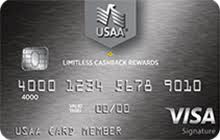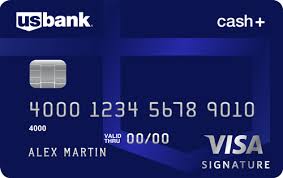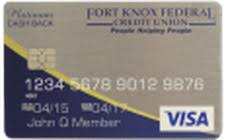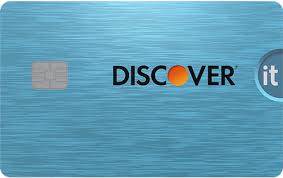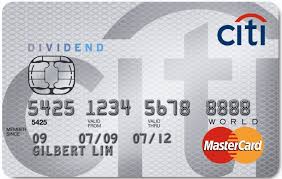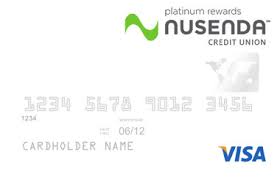- myFICO® Forums
- FICO Scoring and Other Credit Topics
- Personal Finance
- Spending on a credit card
- Subscribe to RSS Feed
- Mark Topic as New
- Mark Topic as Read
- Float this Topic for Current User
- Bookmark
- Subscribe
- Mute
- Printer Friendly Page
Spending on a credit card
Is your credit card giving you the perks you want?
Browse credit cards from a variety of issuers to see if there's a better card for you.
- Mark as New
- Bookmark
- Subscribe
- Mute
- Subscribe to RSS Feed
- Permalink
- Report Inappropriate Content
Re: Spending on a credit card
@Anonymous wrote:Like BrokenCredit, my expenses increased when I had a cc because for me it is easy to fall into the thinking that my CL is more money I can spend rather than what it actually is. Thankfully I never went overboard with that.
I think overspending can be thought of as spending more than what you're bringing in and being unable to pay off your bills.
This is definitely what happened with me. I am spending more then 10k more then I normally would, except I somehow am paying it off. (not sure how though since I wouldn't be able to spend like this without a credit card.)
- Mark as New
- Bookmark
- Subscribe
- Mute
- Subscribe to RSS Feed
- Permalink
- Report Inappropriate Content
Re: Spending on a credit card
@Anonymous wrote:Great responses by Chief and Iced.
I just love the simple rules that Chief gave you including his emphasis on savings, which is something you do not mention in your original post. Paying cards in full each month is the least you should do. To dovetail on what Chief said, unless you are doing all of the following, you are spending too much:
* Paying all cards in full each month
* Paying all other obligations each month (loan payments)
* If you have high-interest loans, making extra payments on those to pay those balances down.
* Saving at least 20% of your gross annually.
Two caveats on that last item ("savings"):
* Some people are in colossal debt or have a loved one who has medical needs (mom with cancer, autistic son, etc.) There you may be able to save only a tiny bit each month since everything else has to go toward getting yourself out of debt or caring for loved ones. If the problem is debt, you should have a plan on how to get out of debt and have scrutinized your past to discern how you got into debt in the first place.
Another obvious exception might be a person who quite unexpectedly lost his job or perhaps someone who is in his early 20s and is just starting out -- there the person may simply be unable to save more than a tiny bit (though every dollar saved put into a Roth by a 23 year old will be gold when he retires, so he should certainly try to save).
* The "20%" figure is not set in stone. For some people 15% might be enough to have plenty of emergency money and plenty of money for retirement. For people like Iced and myself, we prefer to be saving more than 20%. I save around 30% and Iced may save more.
I do all of those but I don't have the ability to save 20% annually, I make 48k, I am able to save 10% though, and then my taxes all go into savings as well. Normally I claim 1 and get back 4500, but I decided, I wanted a bigger check for more savings so I decided to claim zero this year, to get more back at the end.
- Mark as New
- Bookmark
- Subscribe
- Mute
- Subscribe to RSS Feed
- Permalink
- Report Inappropriate Content
Re: Spending on a credit card
@iced wrote:
@Anonymous wrote:
Apparently it cut me off at the end (I'm on a phone as I don't have batteries in my house right now and the store isn't open yet, so my keyboard doesn't work.) What it wad supposed to say at the end is "The problem with this is yes I'm paying in full monthly, however I will do what ever I need to do in order to pay my bills. Also considering I wouldn't be able top spend that amount without the credit cards is something top really think about.
So how would I know if I'm over spending or not, I am not sure either way currently if I am, just a thought that popped into my head maybe a month ago.Spending (and budgeting) is a number; how those numbers are spent really is irrelevant. If you have $5,000 per month in your budget, whether you spend $4,500 on cards and $500 in cash or $4,998 in cash and $2 on a card makes no difference. The problems begin when someone forgets this and starts using cards as if they were extensions to their cash reserves.
If you spend less when you only use cash or debit, the underlying issue is that there's something about the debit/cash that's restraining you psychologically that isn't restraining you with cards. For instance, if someone looks at a credit card with a $10,000 limit and thinks that means they can spend $10,000, they're already starting to set themselves up for failure. Again, they're not cash; they're merely a means to an end. Even thinking of credit cards as a short-term loan is dangerous for people who don't have budgeting discipline. For every person who leverages a 0% period to glean a few extra dollars in interest out of savings, there's 50 who slip and end up paying much more in interest to the cards because they can't pay the balance off in time.
For me, regardless of the limit on a particular card, I look at them all as no pre-set limit charge cards. I ensure that I have the limits to cover the peaks and valleys of my monthly expenses, but I never think of them as available cash. Instead, I think of them as shields around my debit and cash in that I'm giving the money to Chase or American Express and they're then giving my money to the merchant while assuming the risk for a dispute or fraudulent charge. This approach gets me into the mindset that I'm still only spending money that I already have, but merely doing them through the convenience of a credit card.
I feel like I have a good view on them, which is maybe similar to your view. I just see them as debit cards that offer rewards, that happen to be able to used as a credit card when I need it. I usually do not need it for credit though.
- Mark as New
- Bookmark
- Subscribe
- Mute
- Subscribe to RSS Feed
- Permalink
- Report Inappropriate Content
Re: Spending on a credit card
+1 The right approach, I remember feeling the dang I'm running alot on cards for cash back, but yet my checking account now only has maybe 5 transactions a month, as in paying the credit cards. Everything possible, household, cell phone, internet, insurance, gas, groceries, netflix, yada yada is all on credit cards, and turn around and payback exactly what was run through. A credit card used like a debit, but they pay me to use it. I honestly can't recall the last time I swiped my debit.
- Mark as New
- Bookmark
- Subscribe
- Mute
- Subscribe to RSS Feed
- Permalink
- Report Inappropriate Content
Re: Spending on a credit card
@DollyLama wrote:+1 The right approach, I remember feeling the dang I'm running alot on cards for cash back, but yet my checking account now only has maybe 5 transactions a month, as in paying the credit cards. Everything possible, household, cell phone, internet, insurance, gas, groceries, netflix, yada yada is all on credit cards, and turn around and payback exactly what was run through. A credit card used like a debit, but they pay me to use it. I honestly can't recall the last time I swiped my debit.
I actually don't even use my debit anymore at all, I would if I needed to do so, but everywhere I shop accepts all my credit cards. I don't mind that I am spending more than normal since I can pay it off still, ( I do find it odd that I have spent 10k more then I would have been able to do if I were using a debit card) and the rewards are nice, it is just free money for me just for spending what I am already going to do so anyways.
- Mark as New
- Bookmark
- Subscribe
- Mute
- Subscribe to RSS Feed
- Permalink
- Report Inappropriate Content
Re: Spending on a credit card
You need to prioritize and analyze:
1. Long-term savings (eg retirement): are you saving as much as you want? Since it doesn’t seem like you have long-standing debt, pay yourself first — allocate money into savings first then live with what’s left.
2. Next allocate money for necessities: rent/mortgage, utilities, food.
3. Allocate money for recurring expense: cell phone, cable/Netflix/etc...
4. The remaining money can be used for frivolities. HOWEVER, that doesn’t mean you should spend it all. This is where analysis needs to happen — just because you have the money for it doesn’t mean you should spend the money for it. You need to learn to discipline your spending.
a. what did you spend the $20K on?
b. why did you spend on them?
c. were they smart expenses?
5. Whatever is left over should go into short-term savings which will hopefully be your rainy-day fund or vacation fund.
The discipline you learn will allow you to be comfortable with having money and not burn through what’s in hand. It will allow you to be smart about money and eventually build wealth.
You can be those people who can always afford a spur-of-the-moment trip to Hawaii or Paris with friends without losing sleep about how you’ll pay for it.
- Mark as New
- Bookmark
- Subscribe
- Mute
- Subscribe to RSS Feed
- Permalink
- Report Inappropriate Content
Re: Spending on a credit card
@tacpoly wrote:
You may not be technically overspending (i.e. you are able to pay your cc bills in full) but it does seem you are spending more than you are comfortable.
I am not uncomfortable yet but I was shocked.I usually go over my spending around tax time, and it was crazy to see 10k more. I am glad I am thinking about it now though and geting all these great answers and advice from people on here, because I don't want to end up in a situation where I have the same question only I can't pay it off and am 20k in debt.
You need to prioritize and analyze:
1. Long-term savings (eg retirement): are you saving as much as you want? Since it doesn’t seem like you have long-standing debt, pay yourself first — allocate money into savings first then live with what’s left. I am not going to lie here, I have never been in a place in my life where I have been able to have a savings account (I tried many many times and failed each and every time.), in addition to that I wasn't saving for retirement either. The company I work at now gives me great pay, (compared to what I was making) and I am able to have a savings, a 401k, have food in the house, and extra spending money. My retirement will be backed up by my company though, in addition to my 401k they also setup another retirement account once I have worked there 2 more years.
2. Next allocate money for necessities: rent/mortgage, utilities, food. I defintely do this, in fact my rent, and student loans, take up over 25%. My rent will be going up in June as well.
3. Allocate money for recurring expense: cell phone, cable/Netflix/etc... This is taken care of as well, I may be over spending by 10k (again I have paid if off so not technically overspending) but I still have the same mindset about bills as I did before. So every single month in the start, I pay every single one of my bills. (aside from rent and student loans, those are at the end of the month)
4. The remaining money can be used for frivolities. HOWEVER, that doesn’t mean you should spend it all. This is where analysis needs to happen — just because you have the money for it doesn’t mean you should spend the money for it. You need to learn to discipline your spending.
a. what did you spend the $20K on? MY normal spending would be 10 to 13k. As I mentinoed I spent a little over 20k, specifially it was 23k. The first 10 in that is just my normal stuff (bills, food, gas, parking, student loans, rent.) The additional 10k that was spent this time, was spent on things that I could never afford before. (I was at my last job for 10 years, and my new job came with a 20k pay increase) 2.3k was spent on a surprise medical thing, the rest was spent on clothes, shoes, movies, new things for my "house" ( it is an apartment), and my pets.
b. why did you spend on them? I felt like I earned it, I spent the last quarter of my life at a job because I felt like I didn't deserve better, so when I got my new job and huge pay increase I felt like I could do those things if I wanted. ( I do need to really look at it though because yes I got a 20k increase, however my student loans went up 180 a mont and my rent went up 300 and another increase soon.)
c. were they smart expenses? Probably not
5. Whatever is left over should go into short-term savings which will hopefully be your rainy-day fund or vacation fund. I do have my savings which could be for a rainy day, I have never nor will I ever be able to take a vacation though.
The discipline you learn will allow you to be comfortable with having money and not burn through what’s in hand. It will allow you to be smart about money and eventually build wealth.
You can be those people who can always afford a spur-of-the-moment trip to Hawaii or Paris with friends without losing sleep about how you’ll pay for it.
- Mark as New
- Bookmark
- Subscribe
- Mute
- Subscribe to RSS Feed
- Permalink
- Report Inappropriate Content
Re: Spending on a credit card
@Anonymous wrote:
I do have my savings which could be for a rainy day, I have never nor will I ever be able to take a vacation though.
——————-
OP, IMHO, this is where you’re selling yourself way too short. You CAN take a vacation. You’ve proven: you have extra funds from your pay that you can setaside, you can easily pay your monthly expenses and PIF without breaking a sweat, you’ve realized that you can buy the things you deserve and have given yourself the right to buy them.
So if the saving part is difficult to do for a vacation, here’s an idea: pick a place you’d love to visit; apply for a travel rewards CC with SUB 0%APR for 12-15 months (no FTF): charge the vacation on the CC; and then either PIF or pay huge monthly payments so it’s paid off before the expiration.
Take that vacation you so richly deserve. You can do this! Believe me when I say that there are a lot of people who wish they were in your position.
|| AmX Cash Magnet $40.5K || NFCU CashRewards $30K || Discover IT $24.7K || Macys $24.2K || NFCU CLOC $15K || NFCU Platinum $15K || CitiCostco $12.7K || Chase FU $12.7K || Apple Card $7K || BOA CashRewards $6K
- Mark as New
- Bookmark
- Subscribe
- Mute
- Subscribe to RSS Feed
- Permalink
- Report Inappropriate Content
Re: Spending on a credit card
@CreditInspired wrote:@Anonymouswrote:
I do have my savings which could be for a rainy day, I have never nor will I ever be able to take a vacation though.
——————-
OP, IMHO, this is where you’re selling yourself way too short. You CAN take a vacation. You’ve proven: you have extra funds from your pay that you can setaside, you can easily pay your monthly expenses and PIF without breaking a sweat, you’ve realized that you can buy the things you deserve and have given yourself the right to buy them.
So if the saving part is difficult to do for a vacation, here’s an idea: pick a place you’d love to visit; apply for a travel rewards CC with SUB 0%APR for 12-15 months (no FTF): charge the vacation on the CC; and then either PIF or pay huge monthly payments so it’s paid off before the expiration.
Take that vacation you so richly deserve. You can do this! Believe me when I say that there are a lot of people who wish they were in your position.
My mindset just hasn't adjusted yet I guess. I have had this job 3 years in October, but the rest of my life I have worked it wouldn't be possible to have a savings or think about a vacation. I am sure I could take a vacation, conveniently, I was checking the capital one prequalification site 3 days ago and the Venture card is on there. I can see though, I should be able to take a vacation, with a little saving, or a new credit card. Just need to figure out where I would want to go.
- Mark as New
- Bookmark
- Subscribe
- Mute
- Subscribe to RSS Feed
- Permalink
- Report Inappropriate Content
Re: Spending on a credit card
@iced wrote:
@Anonymous wrote:
So how would I know if I'm over spending or not, I am not sure either way currently if I am, just a thought that popped into my head maybe a month ago.If you spend less when you only use cash or debit, the underlying issue is that there's something about the debit/cash that's restraining you psychologically that isn't restraining you with cards.
Typically, this is due to Market Friction, of which most people think they are immune to, but they are really not.
